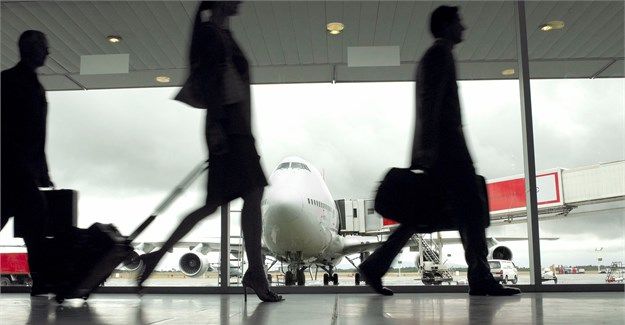
Top stories

Marketing & MediaWarner Bros. was “nice to have” but not at any price, says Netflix
Karabo Ledwaba 11 hours




Logistics & TransportMaersk reroutes sailings around Africa amid Red Sea constraints
Louise Rasmussen 4 hours

More news



















Participants in the global travel industry are among organisations and businesses that have been the hardest hit by the pandemic and the lockdown measures taken by countries around the world. Air travel and accommodation are two cases in point, with the International Air Transport Association conservatively estimating that the world's airlines have lost around $66bn already and forecasting that this cumulative loss could exceed $130bn in the coming months.
Hotels and other accommodation establishments are facing similar financial losses, particularly given the overheads required to keep these establishments operational until they can resume operations.
But for participants in the travel industry, many of which derive large portions of their income from corporate travel, the questions are: "What will their operations look like under this "new normal" world of travel?" and "How, if at all, will corporate travel be transformed by Covid-19?"
The travel itineraries of most corporates are largely mapped out in advance for each financial year, which means there will be a number of significant changes that need to be made to the way in which corporate travel is approached under the "new normal" constraints.
For one thing, there will undoubtedly be a requirement for corporate travellers to be far more aware of the potential for travel disruptions, albeit not necessarily on the massive scale as has been experienced recently. This awareness will need to inform the corporate-travel strategy and due consideration will now need to be given to contingencies in the event of significant disruptions in the future.
Insurance is another key component of corporate travel that will undoubtedly be revisited within the ‘new normal’ parameters. Most corporate-travel insurance policies include the option of standard cancellations as well as 'unspecified' cancellation benefits.
However, these optional benefits come at additional cost. And while many corporates would historically have chosen to leave many of them off to save on premiums, it is likely that they will be thinking twice before doing that in the post-Coronavirus world.
Irrespective of what benefits a corporate chooses to take up or pass up, what will matter more in the ‘new normal’ world of corporate travel will be the policyholder having a clear understanding of what they are covered for and, more importantly, what exclusions might apply if they are faced with unusual travel disruptions.
The same is true of insurance that is typically automatically included when corporates purchase travel tickets using their corporate cards. These insurance offerings differ vastly from one card provider to the next.
And while it previously may have been sufficient to simply accept that you have a measure of insurance cover when paying with a card, Covid-19 has brought home a strong message that this approach to travel insurance is more than a little risky. Going forward corporates will need to pay far more attention to the insurance offerings that come with the card options available to them and will need to choose their card provider based on the extent to which the base and value-adding insurance options on offer align with their risk protection needs.
Interestingly, the challenges of Covid-19 also appear to have had a positive influence on the way in which stakeholders in the corporate-travel industry relate to each other, with clear evidence of far greater levels of understanding and empathy from all parties, including passengers.
While one might have expected travellers who had booked flights and accommodation ahead of Covid-19 to be demanding refunds, those involved in the airline and hotel industries say that that has not been the case. In fact, they say the majority of travellers have been very understanding of the challenges that service providers also face under current crisis conditions and most have been willing to accept vouchers for future travel instead of insisting on cash refunds.
One can only hope that this paradigm shift will become the norm within the travel industry in years to come, with mutual understanding and cooperation forming the basis of relationships between corporate travellers and their service providers.
However, as Covid-19 has demonstrated, enhanced understanding and tolerance alone are not enough to protect corporate entities from the potentially devastating financial repercussions of unforeseen disruptions to their travel plans. As a result, corporate-travel customers are likely to be far more discerning than ever before in terms of the travel they approve for their employees.
In recent years this trend has already been growing, but mainly for reasons of environmental sustainability and cost-cutting. Under the new normal there is likely to be a further layer of caution, dictated by health concerns, that will inform decisions on whether a meeting must take place in person or online.
The bottom line is that Covid-19 has not changed the geographical interdependencies of companies operating in a global business environment. And while there will almost certainly be a stronger focus by corporates on finding ways to be more digital in their engagements, the new normal is unlikely to be characterised by a significant long-term decline in corporate travel.
Rather, with social distancing and risk avoidance now at the forefront of most corporate employees' minds, the impact of the new normal will likely be most evident in the very different way in which companies and people evaluate the need for such corporate travel and the far higher levels of care they take in planning and undertaking it.